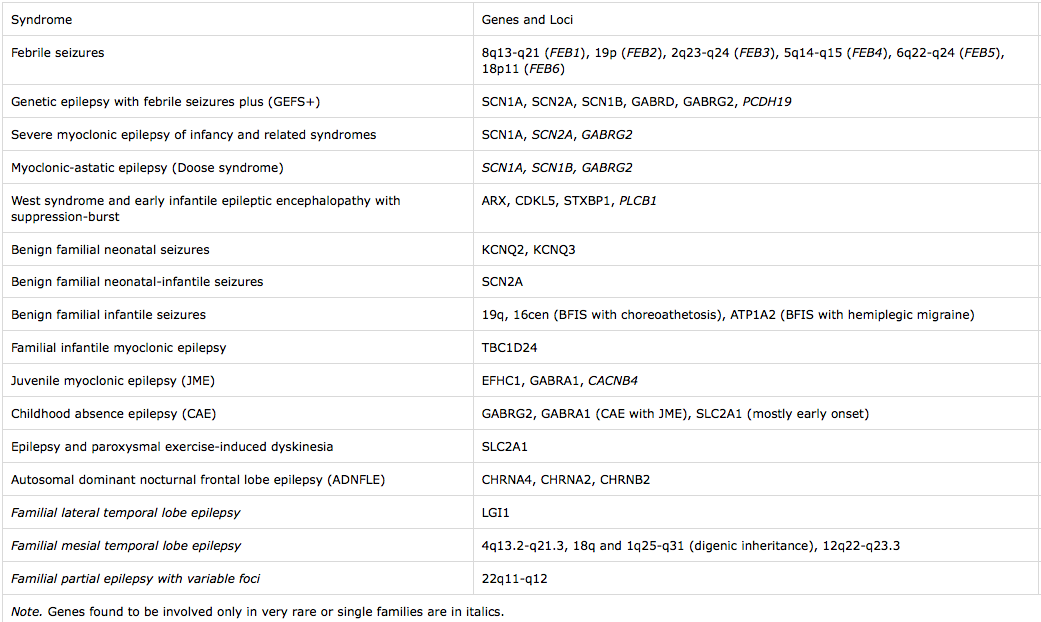Is epilepsy genetically inheritable? If yes, is it dominant?
-
$\begingroup$ This is going to get closed as a personal medical question as-is, but a simple edit could fix that. That being said, there is a well-referenced section on Wikipedia: en.wikipedia.org/wiki/Epilepsy#Genetics $\endgroup$– AmoryCommented Sep 13, 2015 at 16:17
1 Answer
Sometimes!
The causes of epilepsy are legion. There's a massive Wikipedia page listing various causes, and, wow, I get tired just reading the table of contents. None of those are genetic causes, but it should perhaps therefore be not surprising to learn that the genetic causes of epilepsy, although the minority of cases, are also quite varied. Apparently most of the causative genes involve ion channels (whether voltage- or ligand-gated), but there are a truly large number of genes that can be related to epilepsy.
This 2011 paper has quite a lot of information. Some facts it presents on the genetics of epilepsy:
- Something like 1-2% of all mutations in mice present with epilepsy symptoms.
- Concordance is around 50-60% for monozygotic twins, and 15% for dizygotic
- The majority of twin concordance is likely from the same (genetic) cause
- Monogenic causes (versus complex causes of epilepsy) account for around 1-2% of human cases.
In direct answer to your question, there is this paragraph (emphasis added) explaining the rough breakdwn:
Monogenic inheritance is suggested by the familial aggregation of cases that share a similar phenotype and are distributed in the pedigree according to a Mendelian mode of transmission: autosomal or sex-linked, dominant, or recessive. Autosomal recessive epilepsies are often associated with structural or metabolic abnormalities of the brain and with neurologic comorbidities, so most of them are not in the category of idiopathic epilepsies. Examples of these are pyridoxine-dependent epilepsy (PDE), several progressive myoclonic epilepsies (PMEs), and some malformations of cortical development (MCDs). Most of the monogenic idiopathic epilepsies follow the pattern of autosomal dominant inheritance, implying the presence of multiple cases in successive generations and male-to-male transmission.
In short:
- If it's genetic, it's likely to be complicated and controlled by many genes
- If it's controlled by one gene, it's likely to be dominant
The paper also presents the following table which may be of interest, listing monogenic causes of epilepsy:

-
$\begingroup$ "The causes of epilepsy are legion".. did you mean lesion? $\endgroup$– WYSIWYGCommented Sep 14, 2015 at 7:20
-
1$\begingroup$ @WYSIWYG Nope. Adjective form of the word, referencing biblical usage. Just a fancy way of saying "a lot". $\endgroup$– AmoryCommented Sep 14, 2015 at 13:11
